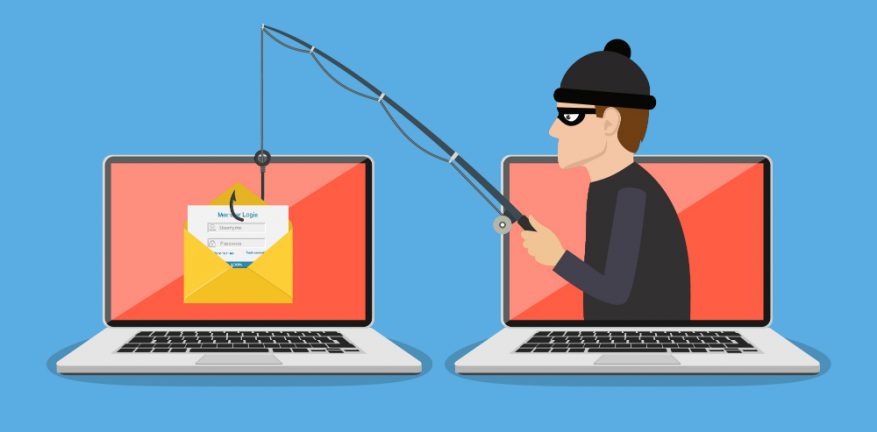You don’t have to search far to know the repercussions a security breach can cause to your business. The recent Equifax data breach was a massive blow to its stock and reputation.
Security data breaches affect businesses of all sizes, and it’s said that 25% of companies suffer losses from fraud of up to $38,000. That’s enough to cause any small businesses to bankruptcy.
A business must ensure that its systems and data are safe from any data breaches. Here are some essential security measures you can use for your business to avoid security breaches.
1) Stay Updated with your Cybersecurity and use a Virus Scanner
Several paid cybersecurity protection programs are designed to offer protection from malware and hackers for every business. These security programs can protect all devices within your network. Once you have your security programs, ensure that they are always updated frequently to protect from any data breaches.
Whether working in the office or remotely, it’s essential to install virus scanning capability on your PC. Many providers offer such services for free.
It’s also worth it if you schedule regular downloads of the security updates to guard against new virus attacks and variations of old threats.
2) Use Strong Passwords

The use of strong passwords across all your devices sounds like a no-brainer. But many security breaches happen due to weak password protocols. Protect access to all wireless networks, sensitive data, and equipment with unique usernames and passwords.
The best and most reliable passwords consist of symbols, letters, and numbers, and aren’t based on common words or phrases and easy dates like birthdays, which anyone can guess.
All users should further have passwords whenever they log in to their devices. If you have information with the entire user passcodes, encrypt it and ensure you store it securely. Remember to also change passwords frequently as an added protection.
Also Read: Best Password Practices to Keep Your Website Secure
3) Save the Necessary Information
All businesses contain information about their customers and transactions. It’s imperative that the more information you collect about your staff and customers, the more you need to keep it secure.
Companies tend to save more information than required, and mostly, it’s the customers who suffer whenever there’s a data breach.
To limit the information on your computer that hackers can steal from your business, only save data needed for the business. Avoid collecting any extra information. If there’s some data you need temporarily, discard it immediately after using it.
4) Set Internal Systems to Protect your Business from Employee Fraud

As much as all security breaches are blamed on hackers, some unauthorized data breaches come from inside network firewalls. It’s best to screen all your staff members and ascertain their credibility.
It would also be best if you limit your employees’ access to information. Ensure you limit each employee to only access the data they need for their job.
It’s advisable to set up your systems to record every login and which information each employee accesses. You can also set up segregated duties for different employees to avoid one employee from having access to too much information. Otherwise, too much access could lead to stealing company information or misuse of your business funds.
5) Keep Sensitive Information out of the Cloud
Cloud computing offers businesses savings on cost, fast performance, and flexibility in how your employees work.
But then, such services could be a gateway to additional threats because the company’s data is housed on servers operated by third parties who, when faced with security issues, will leave your information vulnerable. It’s crucial to save the most sensitive data on your networks to be on the safe side.
Also Read: Is DevOps the Future of CyberSecurity? An Analysis
6) Avoid Clicking any Unfamiliar Email Attachments

Never click on unknown email attachments that can contain viruses or Trojans programs. Before opening the attachments, always contact the sender to confirm the attachments’ contents if you don’t know the sender. It’s best to delete the email, and even block the sender’s email and warn others to do the same.
Some phishing scams work by sending emails requesting usernames and passwords. In other instances, they can create fake websites demanding your information by asking you to input the data on the site.
Always go to a company’s valid website before sharing such information, or you can call the company before providing sensitive information or clicking on suspicious links.
7) Provide Basic Staff Training

Countless data breaches are a result of carelessness or human error. You can help create a corporate culture in your company that emphasizes information security that warns the use of weak passwords and careless use of programs, devices, and networks.
All security measures installed in your company, from document disposal to sensitive information access and storage, should be second nature to all staff members of your organization.
Also Read: Are We Doing Enough to Protect Our Cybersecurity Professionals?
8) Plan your Response to Data Breaches
How you respond to data breaches could determine the difference between a minor information loss and a costly data breach. You should always ensure that you have plans to expect any breaches, and how you’ll deal with them even in a worst-case scenario. Your recovery plan should include three vital steps:
- Shut down any compromise immediately. You should disconnect and shut down any compromised devices, and avoid using any compromised programs immediately.
- Notify the relevant parties. This depends on whatever information was accessed or stolen. You’ll need to inform your customers and let law enforcement know about it as well.
- Investigate what happened. Conduct a thorough audit of all your network systems to determine what happened, or hire a company like 2J Data to figure out what went wrong.
9) Multi-Factor Authentication
Majority breaches resulted due to the use of cracked, interrupted, or other disclosed authentication credentials.
To avoid such a situation, start using robust MFA methods by default whenever possible. These methods will be combined with the ability to identify and alert on failed login attempts, which can provide a hint to users that may be the focus of targeted attacks.
Conclusion:
Information data breaches may have a significant blow on a business. Security issues are known to bring down many companies. Loss of revenue can result from handling the problem and damage to your brand’s image.
Although you can’t prevent data breaches or fraud, with the right security practices mentioned above, you can reduce their likelihood and the damage they cause.
